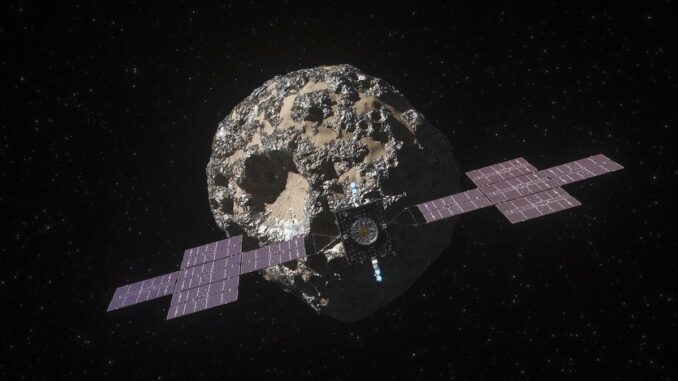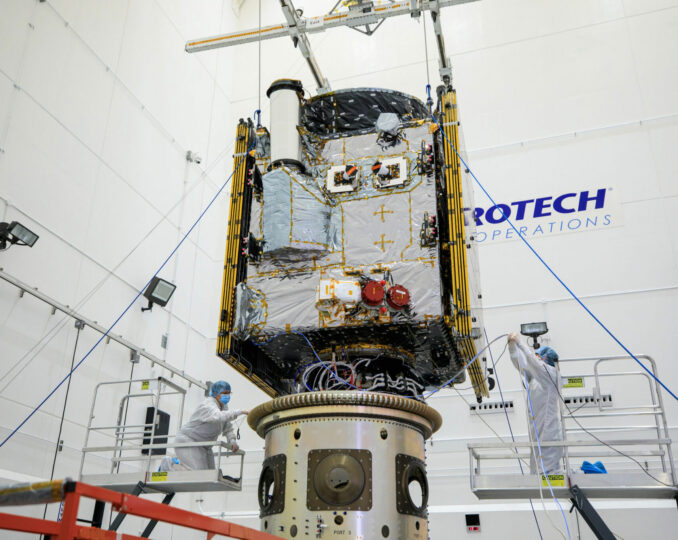Updated (7:35 p.m. EDT (2335 UTC): Adding NASA confirmation of delay.

The launch of NASA’s Psyche asteroid mission is being delayed a week due to allow “verifications” of parameters used by the spacecraft’s thrusters, the space agency confirmed Thursday. Liftoff on a SpaceX Falcon Heavy rocket is now scheduled for no earlier than Oct. 12.
“The change allows the NASA team to complete verifications of the parameters used to control the Psyche spacecraft’s nitrogen cold gas thrusters,” NASA said in a blog post that confirmed the delay, five hours after Spaceflight Now first reported it. “The parameters were recently adjusted in response to updated, warmer temperature predictions for these thrusters.”
The billion-dollar mission had been scheduled to liftoff at the opening of a 20-day launch window on Oct. 5. The probe is already running more than a year behind schedule due to software problems.
Liftoff from pad 39A at NASA’s Kennedy Space Center is now scheduled for 10:16 a.m. EDT (1416 UTC) on Oct. 12. The Falcon Heavy rocket that will launch the probe is expected to rollout of its hangar soon for a static test firing of its 27 Merlin booster engines that was scheduled no earlier than Friday. As usual, for a mission of this type, the engine test will take place without the payload attached.

The space agency’s said in a blog post on Sept. 22 that fueling and testing of the spacecraft were complete. Psyche had been connected to a payload attach fitting for the Falcon Heavy on Sept. 20 at a satellite processing facility near the Kennedy Space Center in Titusville, Florida, in readiness for encapsulation inside the rocket’s nose cone.
The Falcon Heavy will start the probe on a 2.2 billion mile (3.5 billion km) trek through the solar system. The craft will need a gravitational slingshot from a flyby of Mars in 2026 to supplement its electric propulsion system in order to reach the asteroid, which orbits the Sun at an average distance of three astronomical units (Earth orbits at a distance of one astronomical unit).
Psyche, has an irregular shape, a diameter of about 140 miles (226 kilometers), and is made mostly of nickel and iron metals. NASA Psyche mission will be the first spacecraft to explore a metal-rich asteroid, which might be the leftover core of a protoplanet that began forming in the early solar system more than four billion years ago.
